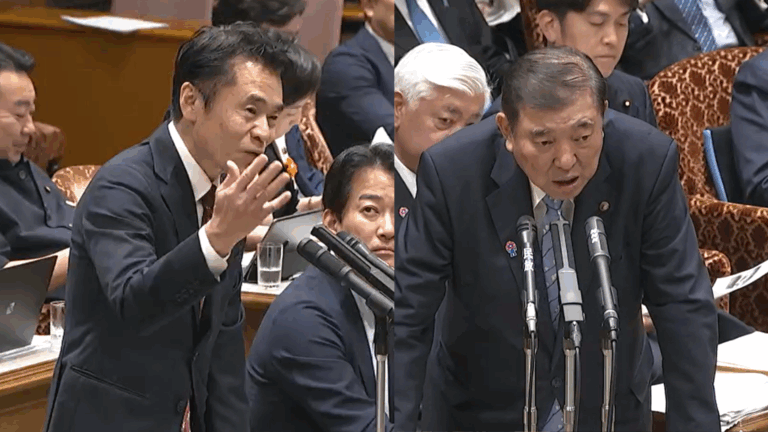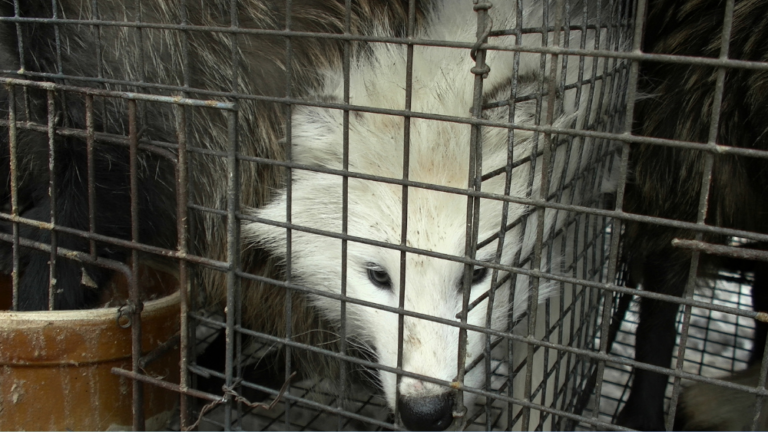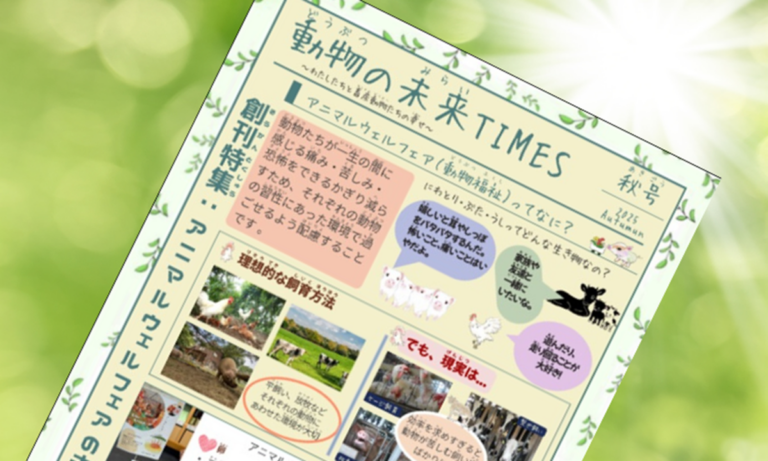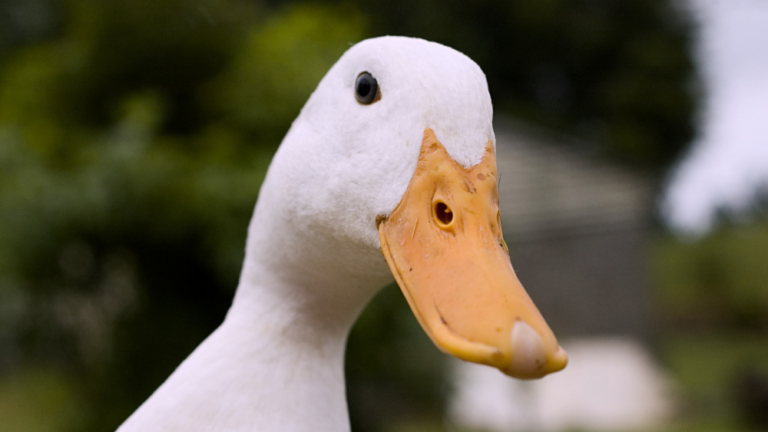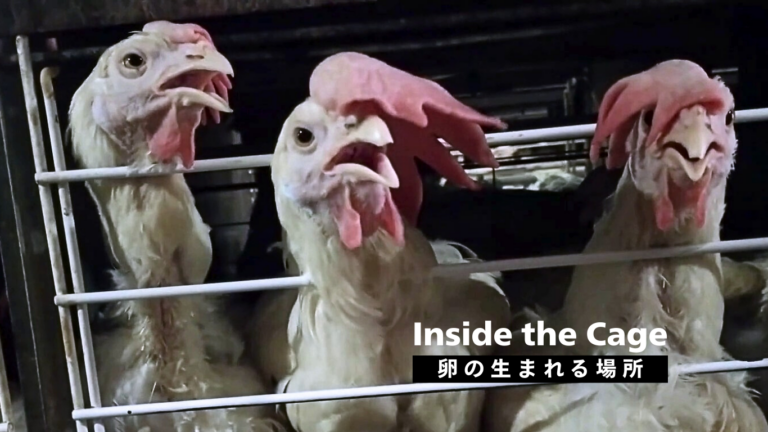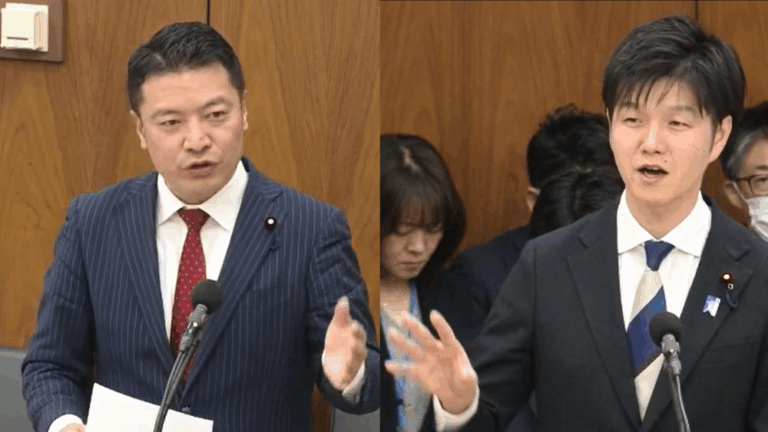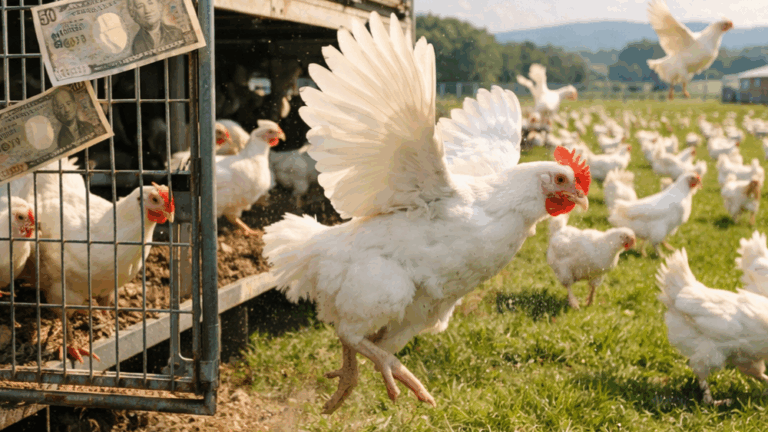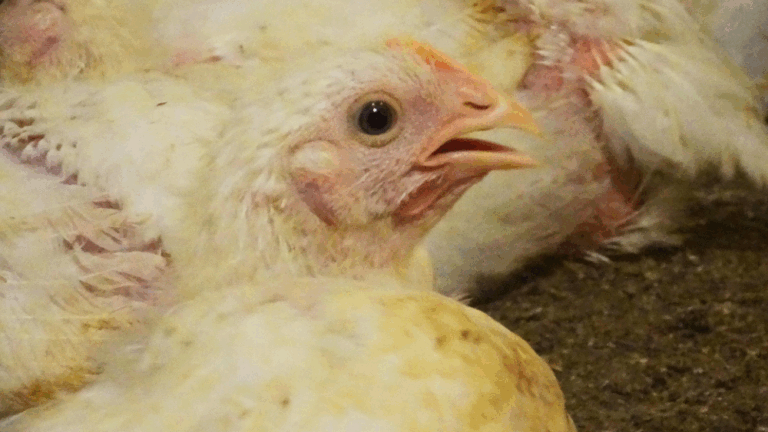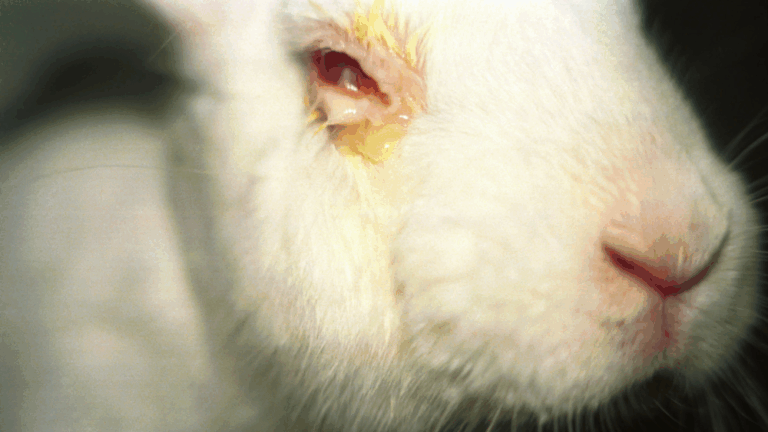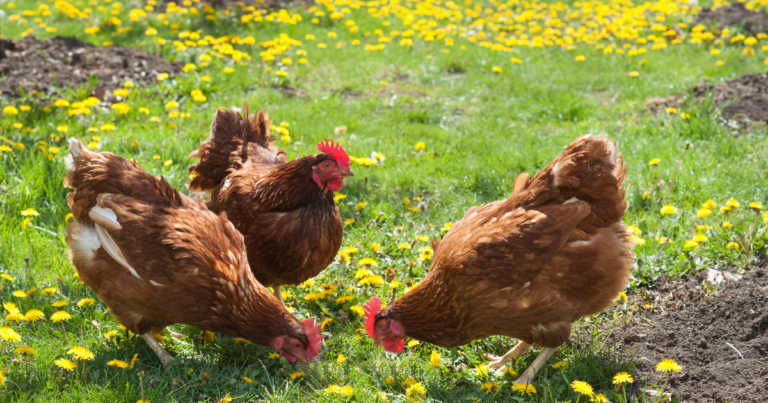On June 9, 2025, at the House of Councillors Accounts Committee, Japan Restoration Association member Seiichi Kushida pressed Prime Minister Ishiba and Minister of Agriculture, Forestry and Fisheries Koizumi to address animal welfare.
Since the WAP evaluation gave Japan’s livestock animals a protection rating of “G,” we asked Prime Minister Ishiba about his opinion on this rating. In response, Prime Minister Ishiba replied that unfortunately, the Ministry of Agriculture, Forestry, and Fisheries (MAFF) has been reporting that cage rearing is superior in terms of hygiene and ease of individual management, such as checking health and egg-laying status. Furthermore
It is important to consider animal welfare from the standpoint of living creatures, not from the standpoint of humans who are only concerned about what is good for humans.
He stated that he would “think about it from the bottom up” under Minister Koizumi of Agriculture, Forestry, and Fisheries. Prime Minister Ishiba has also served as Minister of Agriculture, Forestry, and Fisheries, so he must have some knowledge of this issue. He has also accepted the petition of the Animal Rights Center. However, it is unfortunate that, in his position as prime minister, he is stating the Ministry of Agriculture, Forestry, and Fisheries’ position as it is.
It is incorrect to say that cage keeping “makes it easier to manage individuals by checking their health and spawning status.
It is not easy to observe individuals in cage keeping. Producers who have both cage and cage-free chicken coops have pointed out that the first advantage of cage-free chicken coops is the ability to observe the condition of their chickens, and the distribution of cage-free coops is higher when it comes to checking the condition of chickens, which is the basis of animal welfare. It has been pointed out that cage keeping limits the observation of behavior and individuals, making early detection of abnormalities difficult*1 Other problems include the fact that the high density of battery cages makes it easy to block the view, making it physically difficult to ascertain the condition of individuals, although this alone cannot be the single theme of the study, it is frequently pointed out. In fact, it is often the case that chickens are found flattened and rotting in their cages, having been trampled there. When the chickens are cage-free, they are free to move around, and their health is easy to determine.
Full text of the answer (may contain errors due to transcription from an interview)
Mr. Seiichi Kushida: Regarding the question of how Japan treats animals, there is a famous quote by Mahatma Gandhi that says that a country’s greatness and moral progress can be judged by how it treats animals. In this sense, the World Society for the Protection of Animals evaluates animal welfare and animal welfare for livestock animals every few years, and the most recent evaluation was for Japan. Which of the BCGFG’s evaluations is the most recent?
Mr. Matsumoto, Director General, Livestock Production Bureau, Ministry of Agriculture, Forestry and Fisheries: I will answer your question. The World Society for the Protection of Animals, a private overseas organization, has released its evaluation twice so far. In the second evaluation in 2020, Japan received a good overall evaluation, while the protection of livestock animals was given a poor evaluation.
Seiichi Kushida: I think your voice at the end was very small, but as you can see from the panel, Japan ranks last in the world. As you can see from the panel, Japan ranks last in the world. There is no other country in the world that is as cold to animals as Japan. The next to this is China and Russia. According to Gandhi, you can judge a country’s greatness and moral progress by the way it treats animals. In this sense, Japan is a country that is becoming more and more similar to its neighbors, and is standing shoulder to shoulder with them. I don’t think Prime Minister Ishiba, who is a cat lover, would think that as long as the people are good, the animals are fine.
Prime Minister Ishiba: I am a cat lover and since you have asked me to answer, I will give you my answer, but I do have such a point of view. I have been involved in this issue since I was Minister of Agriculture, Forestry and Fisheries, and I am not at all reasserting that Japan does not necessarily abuse chickens, but I have received reports that, in terms of hygiene control, the Japanese way of keeping chickens is a cut above the rest. However, in terms of hygiene control, we have received reports that the Japanese way of keeping chickens is a day ahead of the Japanese way.
Animal welfare really means that we should not say that we are going to eat them anyway, but rather, we should think about how to respect the rights of living creatures to the fullest extent, and I would like to repeat this again. I am sorry to repeat this, but the Japanese way of keeping animals, or should I say “battery cages,” makes it easier to manage individuals, such as checking their health and spawning status. The poultry are less likely to fight and cause accidents, and they are more hygienic because there is less contact between the chickens and their excrement. In the case of flatlanders, there is also the question of how it would look like. I do not intend to be open-minded at all, but I think it is important to consider animal welfare from the standpoint of living creatures, not from the standpoint of humans who are only concerned with the good of humans. At the same time, we must not forget the importance of providing safe and hygienic poultry meat to the public in the face of the avian influenza, etc. Under Minister Koizumi’s leadership, we will further consider this issue thoroughly.
Mr. Seiichi Kushida: Yes, Prime Minister Ishiba just mentioned the name of Minister Koizumi of Agriculture and Fisheries, so I have great expectations for him.
I was the deputy secretary-general of the Diet and all the members of the Diet agreed that the amendment of the Animal Welfare Law in 2019 would not have been possible if it had not been for Minister Koizumi. I was the deputy director-general of the Diet and the members all agreed that the revision was made possible only because Mr. Koizumi was the Minister of the Environment, I know that Minister Koizumi must have been pained by this kind of evaluation, but he did not include the words “animal welfare and animal welfare” in his policy statement, did he? I have heard this from successive Ministers of Agriculture, Forestry and Fisheries. I have been asking about this for many years, but not a single one of them included it. I was sure that Mr. Koizumi would include it in his policy letter this time, but I am very disappointed that it was not included.
Minister of Agriculture, Forestry and Fisheries Koizumi: In my letter to the Minister of Agriculture, Forestry and Fisheries, which was given just after I took office, I made a clear answer that I was preoccupied with rice, which I thought was not a good answer. The Basic Plan for Food, Agriculture and Rural Areas and the Basic Policy for Livestock Production, including the Basic Policy for Modernization of Dairy and Beef Cattle Production, which were announced in April this year, also clearly state that animal welfare will be promoted. However, since we are working on rice with a great deal of speed and workload, we wanted to avoid placing an excessive burden on the government officials in the initial consultation process, so we made some modifications to the policy statement. So, I made some modifications to the statement in order to avoid excessive burdens on the government officials in the first initial examination.
While keeping this in mind, we will continue to promote animal welfare.
Mr. Seiichi Kushida: Yes, until March 2021, the Minister of Environment did not include the word “animal protection” in his policy statement, and when I asked him why the Minister of Environment did not include it in his policy statement, he included it in the next extraordinary Diet session, and since then, the Minister of Environment has included the word “animal protection.
Therefore, I am convinced that the current answer will surely be included in the special session of the Diet this fall.



